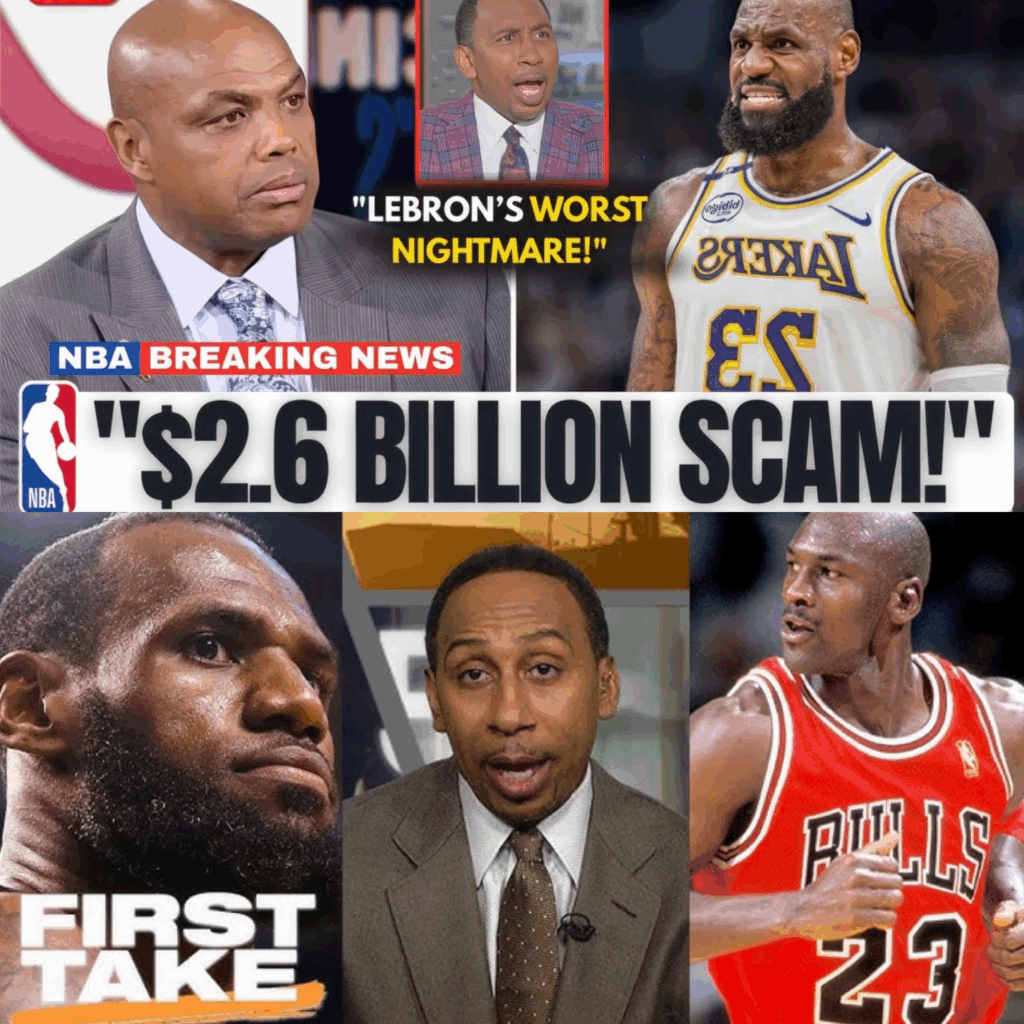ESPN’s Role in Shaping LeBron James’ Legacy: Barkley’s Bold Claims
In the world of sports media, few debates have been as contentious and polarizing as the one surrounding LeBron James and Michael Jordan. Recently, Charles Barkley made waves by asserting that ESPN has not only failed to protect LeBron’s legacy but has actively damaged it while profiting from the ensuing chaos. This revelation raises critical questions about the integrity of sports journalism and the future of basketball fandom.
The Ugliness Behind the Debate
Barkley argues that ESPN has transformed the LeBron vs. Jordan debate into a spectacle, prioritizing sensationalism over substance. He points out that Skip Bayless, a prominent figure in sports commentary, has been a key player in this narrative since LeBron was just 21 years old. According to Barkley, Bayless’s controversial takes have fueled a toxic environment where genuine appreciation for the game is overshadowed by divisive rhetoric.
.
.
.
The fallout? A fractured fanbase that is often at odds with itself, unable to celebrate the greatness of both players. Barkley, a Hall of Famer himself, believes that this approach has not only hurt LeBron but the entire NBA, which is now facing declining ratings and increasing criticism.

The Ratings Crisis
As the NBA grapples with plummeting viewership, Barkley highlights a troubling trend: the most beloved basketball show in television history, “Inside the NBA,” is being blamed for the league’s struggles. Critics like Colin Cowherd and Jason McIntyre contend that the show’s hosts, including Barkley and Shaquille O’Neal, have contributed to the degradation of the game by focusing on negative narratives.
This criticism is particularly poignant given ESPN’s staggering $2.66 billion investment in NBA broadcasting rights. With such a significant financial commitment, the network is under immense pressure to deliver content that drives engagement. Unfortunately, this often means sensationalizing conflicts rather than fostering genuine discussions about the sport.

Barkley vs. Perkins: A Clash of Perspectives
Barkley’s disdain for the current state of sports commentary was evident when he took aim at Kendrick Perkins, a former player turned analyst. Barkley accused Perkins of being a “groupie” for LeBron and claimed that his narratives revolve solely around the Lakers and their star player, sidelining other teams and players who deserve recognition. He lamented the fact that ESPN has opted for “knockoff” versions of basketball analysis instead of elevating voices with real expertise.
This sentiment reflects a broader issue within sports media: the tendency to elevate personalities over substance. Barkley’s frustration stems from seeing someone like Perkins, who he believes lacks the credentials to provide meaningful analysis, positioned as an authority on national television.
The Artificial Drama
Barkley’s most damning accusation is that ESPN has created an environment where artificial drama is more valuable than authentic analysis. He points out the absurdity of social media influencers and personalities with little basketball knowledge being invited to debate the greatest players of all time. This strategy, he argues, diminishes the quality of discourse and erodes the rich history of basketball.
Instead of celebrating the achievements of legends like Jordan and LeBron, fans are subjected to a never-ending cycle of hot takes and manufactured controversy. Barkley believes this has led to a toxic culture where basketball fans are divided into factions, unable to appreciate the greatness of both players.
The Future of Basketball Media
As ESPN continues to reward personalities like Stephen A. Smith with lucrative contracts, Barkley warns that this approach will only exacerbate the issues facing the NBA. He argues that the network’s focus on controversy over celebration is detrimental to the sport’s long-term health.
LeBron James himself may be feeling the effects of this toxic media landscape. Barkley suggests that while LeBron appears to be upset about the coverage of his son, Bronny, the deeper issue lies in his frustration with how he has been portrayed over the years. For two decades, LeBron has been a central figure in ESPN’s content machine, and the relentless scrutiny has taken its toll.
Conclusion: A Call for Change
Charles Barkley’s revelations serve as a wake-up call for both media and fans. The debate between LeBron James and Michael Jordan should be a celebration of basketball greatness, not a divisive battleground. As the NBA faces unprecedented challenges, it’s crucial for sports media to shift its focus from sensationalism to thoughtful analysis.
Will ESPN heed Barkley’s call for change, or will they continue down the path of manufactured controversy? The future of basketball culture may depend on it. What do you think? Has ESPN ruined the LeBron vs. Jordan discussion forever, or is this simply the evolution of sports media in the digital age? Share your thoughts in the comments below!





